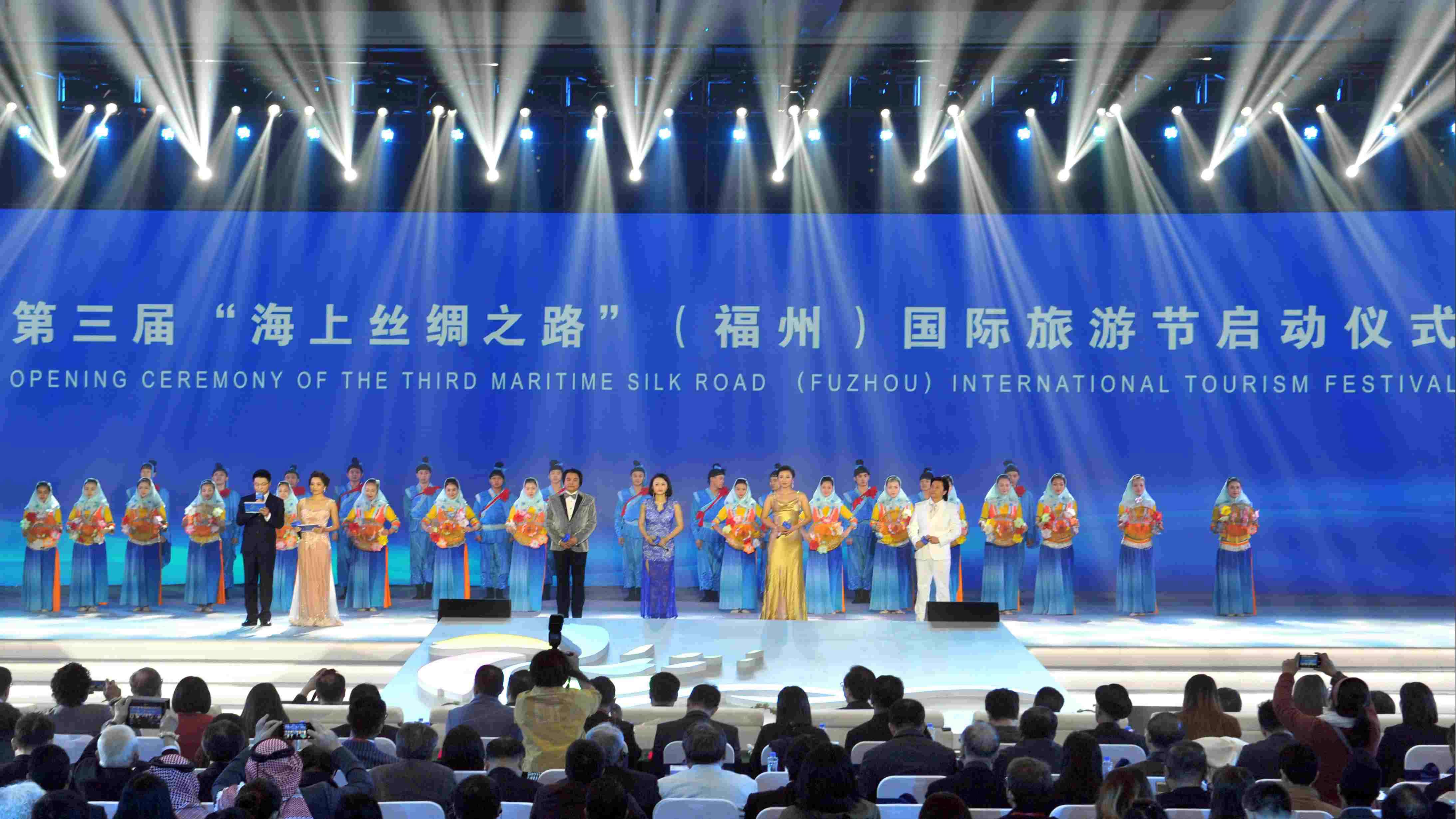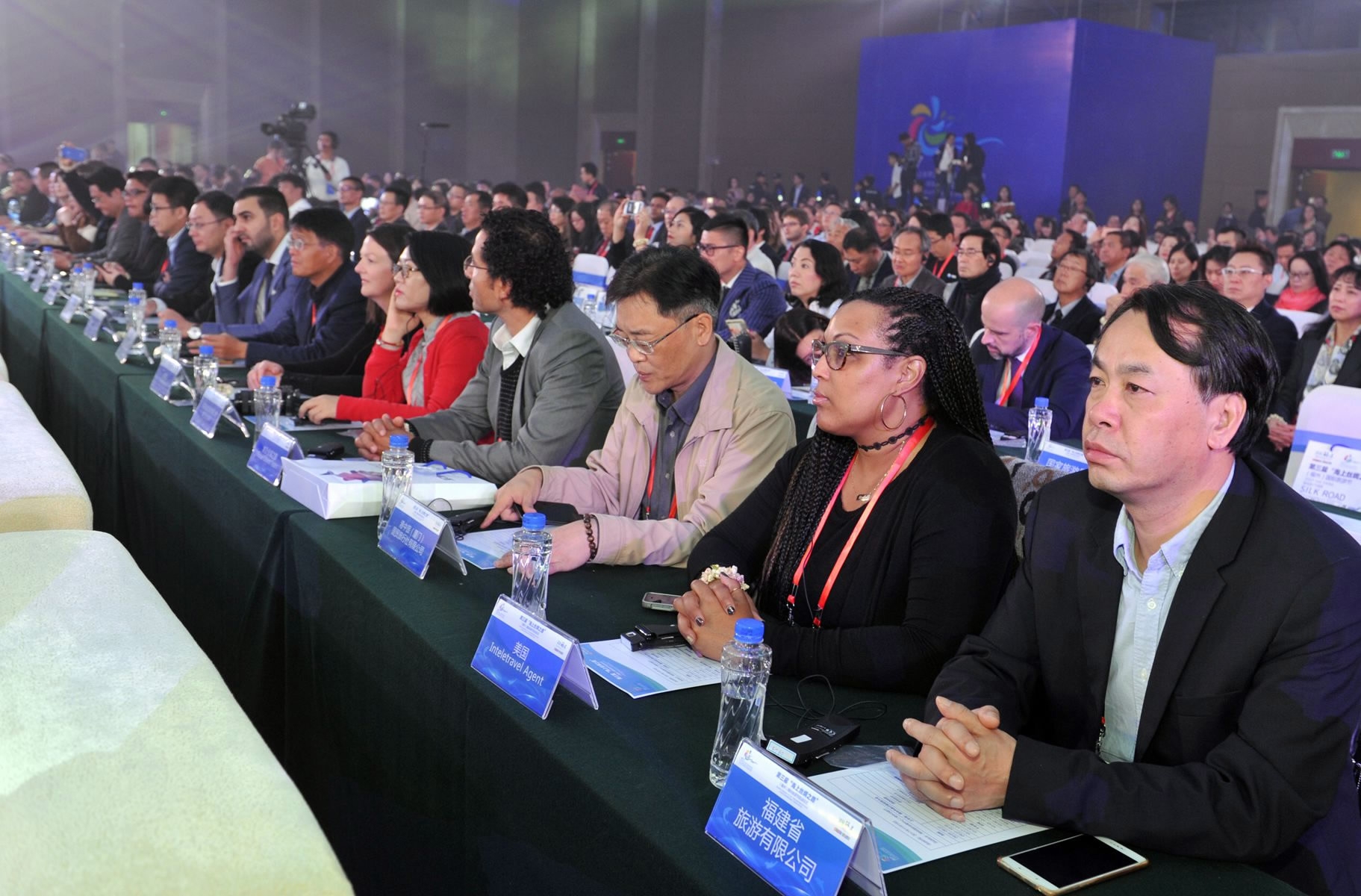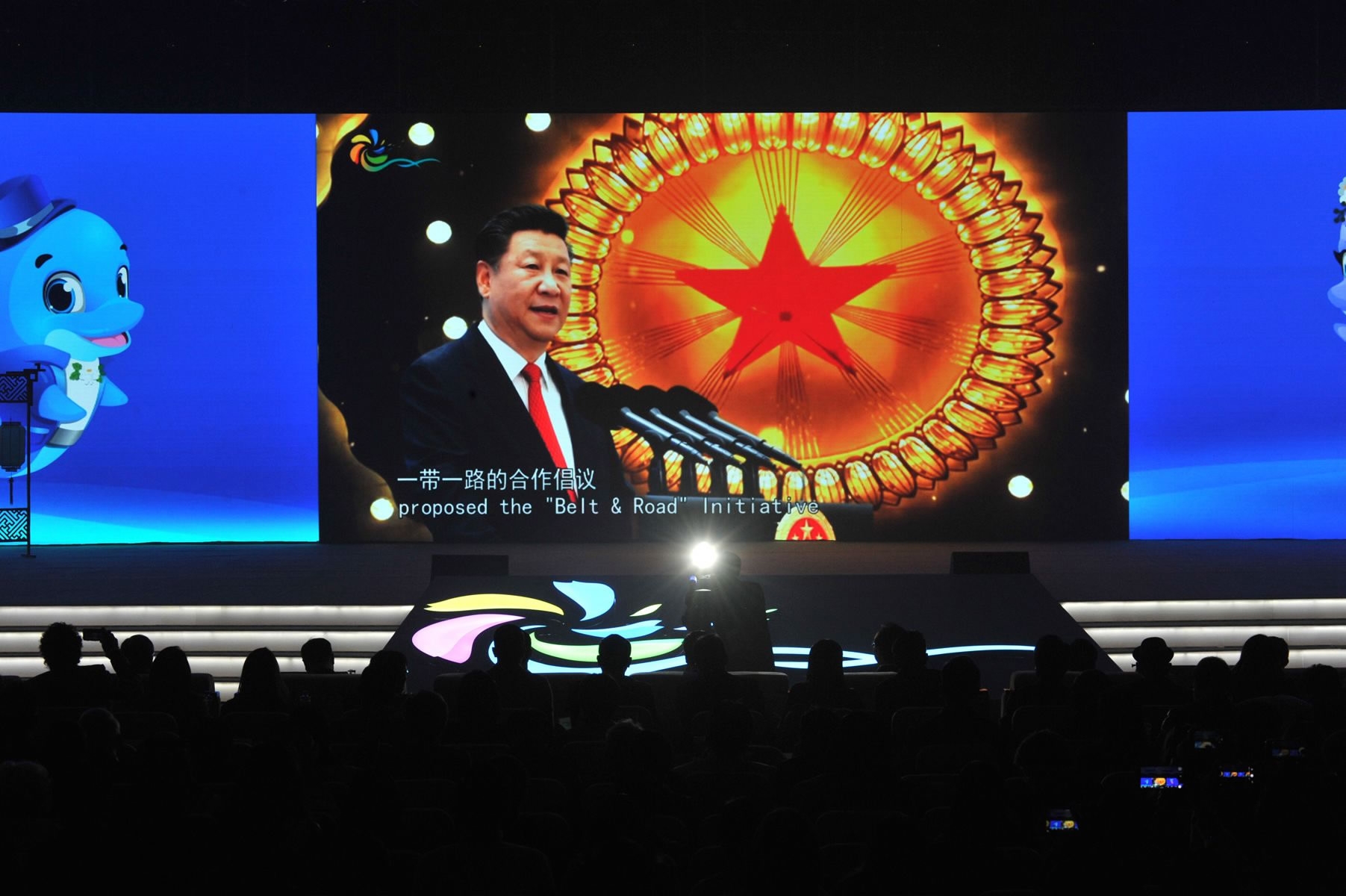
Culture
18:04, 20-Nov-2017
Festival highlights Maritime Silk Road tourism development
CGTN

The third Maritime Silk Road International Tourism Festival opened Sunday in Fuzhou, capital of southeast China's Fujian Province.
In a bid to promote Fujian's status along the Maritime Silk Road, the local government invited more than 300 tourism experts and industry insiders from home and abroad to shed light on the route's tourism development.
The forum was jointly held by the Fujian Tourism Development Committee and Fuzhou Municipality. Attendees were from the World Tourism Organization (UNWTO) and Pacific Asia Travel Association (PATA), as well as tourism agencies in "Belt and Road" countries.
Robert Travers, a consultant with the UNWTO, gave a speech on how to unearth the historic and cultural heritage along the Maritime Silk Road and make the brand shine.
He said, according to Forbes Magazine, the "Silk Road" brand has been recognized as a more famous brand than Coca-Cola. "There are at least 30 world heritage sites with direct links to Maritime Silk Road heritages."

Representatives at the Maritime Silk Road International Tourism Forum. /Handout Photo
Representatives at the Maritime Silk Road International Tourism Forum. /Handout Photo
Travers cited a TripAdvisor study that listed the top 10 tourism nations in the world, four of which are linked to the Silk Road: Greece (3rd), China (5th), Indonesia (6th) and Japan (9th).
"We can see that the culture and tradition of the Maritime Silk Road have an appeal to the market. Related tourism products can bring new opportunities for the tourism market," he said.
John Koldowski, a strategy consultant with the PATA, visited China more than 70 times in the past 15 years. During the summit, he shared his thoughts on how to discover the inner value of the ocean route.
He pointed out that the promotion of the Maritime Silk Road should not stay on paper but be enriched with history, dialogue and stories, and let the visitors become attracted to the people and sea cruises.
The representatives also discussed how to develop 21st century Maritime Silk Road tourism in the post-BRICS era.

Chinese President Xi Jiniping proposed the Belt and Road Initiative in 2013. /Handout Photo
Chinese President Xi Jiniping proposed the Belt and Road Initiative in 2013. /Handout Photo
The Belt and Road Initiative was proposed by Chinese President Xi Jinping in 2013. The Belt and Road routes run through the continents of Asia, Europe and Africa, connecting the vibrant East Asia economic circle at one end and the developed European economic circle at the other.
The opening ceremony also witnessed the unveiling of the National Tourism Data Center's Fuzhou sub-center.
The representatives were treated to the Fuzhou Maritime Silk Road exhibition, which showcases how the city participated in and contributed to the development of the Maritime Silk Road in the past 2,200 years.

SITEMAP
Copyright © 2018 CGTN. Beijing ICP prepared NO.16065310-3
Copyright © 2018 CGTN. Beijing ICP prepared NO.16065310-3